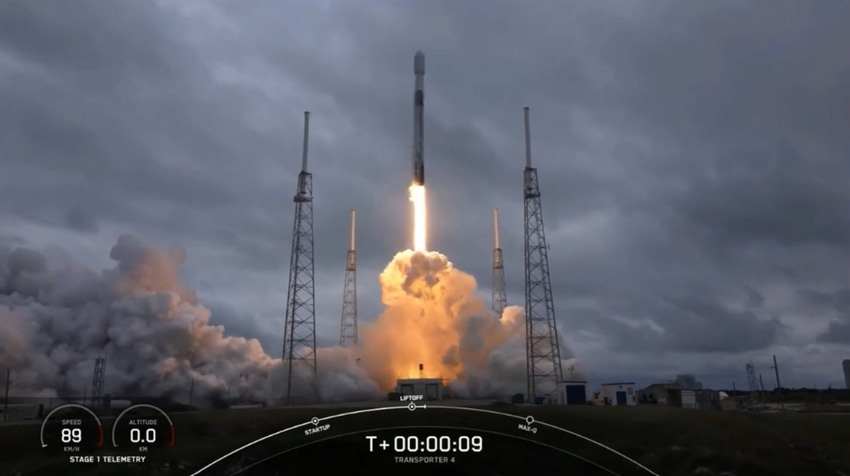US comms regulator the Federal Communications Commission has given the green light to Lynk’s satellite-direct-to-phone service, following SpaceX and T-Mobile’s joint announcement that they intend to enter the market.
September 20, 2022

US comms regulator the Federal Communications Commission has given the green light to Lynk’s satellite-direct-to-phone service, following SpaceX and T-Mobile’s joint announcement that they intend to enter the market.
Lynk says it’s the world’s first commercial license granted for a satellite-direct-to-phone service, and it will begin commercial services later this year. Lynk’s proposition removes the need for a relay between the satellite, base station and device and provides connectivity directly from the satellite to handsets.
The service is designed to solve what Lynk calls the 0G problem, or not-spots as is more commonly said. Lynk has a patented technology that allows a regular phone antenna to receive a radio signal from satellites, and the idea is you can get service using that where terrestrial coverage is lacking.
The firm launched its Lynk Tower 1 satellite in April, and is scheduled to launch more later this year. We’re told it has signed contracts with 15 mobile network operators in 36 countries representing over 240 million mobile subscribers, and is actively testing in ten countries.
“The FCC is the gold standard of telecommunication regulators,” said Margo Deckard, COO and co-founder of Lynk. “They have deep technical knowledge and conducted a rigorous review process, which validates that Lynk’s first-of-its-kind satellite-direct-to-standard-mobile phone service is ready to be deployed globally. We applaud the FCC and its staff for using their small sat rules to accelerate innovation in space. We are honored to receive the very first commercial license for the world’s first true satellite-direct-to-standard-mobile phone service from such a credible and respected regulator.”
This follows Elon Musk’s Starlink and T-Mobile’s announcement that the two firms plan to work on a similar satellite-direct-to-phone service – which we hope as a term is soon replaced with something less cumbersome. The announcement was a big, bold affair at Space X’s launch facility – however it was lacking in specifics as to when any such service might arrive.
Speaking to Telecoms.com, Lynk CEO Charles Miller said he welcomed the competition: “I want to personally thank SpaceX and T-Mobile for their help in marketing the existence of a solution to the ‘0G problem’. Three years ago, when Lynk first started talking about this publicly, there was a lot of scepticism. The first question was ‘can you really do this?’ The second question was ‘is this really a big business?’ Both of those questions have been unequivocally answered.”
At the time of the interview Miller mentioned that this was all reliant on getting the FCC license – a barrier which has now been removed. Being able to plough on with getting its service up and running means Lynk is in a good position to contrast its offering with the somewhat vague aspirations T-Mobile and Space X have made public.
However there remains the issue that the tech only really supports texts so far, and the question of just how big the commercial opportunity is for providing coverage to not-spots in mountain ranges or jungles, or other areas it’s been deemed undesirable or impossible to extend terrestrial coverage to.
Get the latest news straight to your inbox. Register for the Telecoms.com newsletter here.
About the Author(s)
You May Also Like








.png?width=300&auto=webp&quality=80&disable=upscale)


_1.jpg?width=300&auto=webp&quality=80&disable=upscale)


.png?width=800&auto=webp&quality=80&disable=upscale)